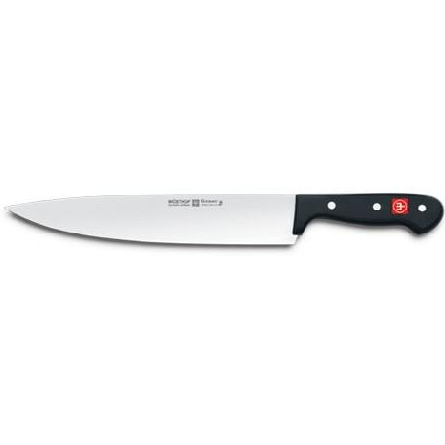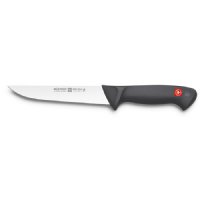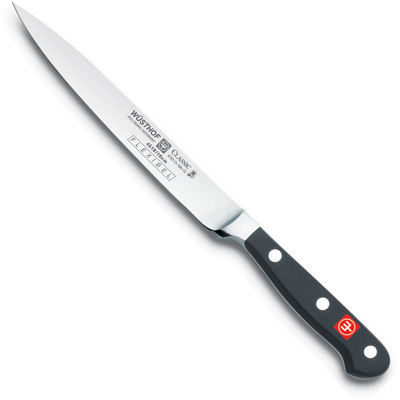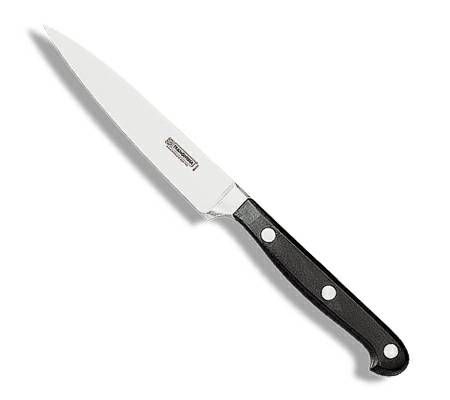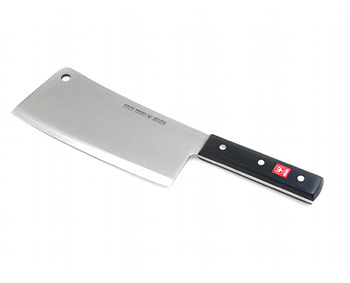News
BN Cuisine with Chef Fregz: Knives Matter Too
To be honest, before I went Pro, I had a serious desire to understand why knives never stayed sharp after you bought them and why the knives we used at home always broke or chipped at a point and I couldn’t use them to chop up vegetables the way I saw the TV chef do it.
I only did what I knew: scrape it against a stone which always seemed to work temporarily. However, the bluntness returned in a matter of minutes. oh… the way knives were used to open everything bugged me as well, from peak milk to “tin tomato” *shivers*
I’m not trying to be a know it all but I believe everyone should have a clue on how to handle knives so they last longer and it more effective for a longer period of time.
So, apart from recipes I would share tips on how to take care of knives, the ones to buy, what they are used for and things along that line.
My head chef at school told us “respect your knives“. I’ll amend this slightly and say “Know and respect your knives”
First what are the different major types of knives?
- Chef Knife
- Butcher Knife
- Fish Knife
- Pairing Knife
- Cleaver
- Bread Knife
- Carving Knife
There are others but the ones above are the main ones but the general care applies to all knives.
Do not allow the chef there scare you. It is basically the biggest knife in a set and it’s the knife a chef uses the most. It can come in up to 4 sizes. In extreme cases there’s the XXL then the XL L and M. Its uses are mainly for chopping vegetables, and butchering birds like chicken and in some cases filleting fish but those are for the grand masters who have gathered enough experience and know how to cut through those proteins without damaging the knife. A good chef knife should be firm at the base.
The lower part which has the bigger girth/width is what should be used for chopping and cutting. Chopping should be done in a rocking motion where you use the front of the knife against the board and move the lower end of the blade to glide into the vegetable or whatever your chopping. do not use it to hit against bones.
Try as much as possible to use the back of the knife to scrap things of the board to maintain the sharpness of the blade for longer.
As the name implies it’s used to butcher stuff. This knife is used to cut meat away from bones or scrap off fat or flash against bone from a lamb chop for a example. It is also used for portioning chicken as well. The knife is usually more sturdy and is shaped for slicing against bone. However, do not use this for cutting against bone.
Sometimes you can’t get the knife in bigger sizes but that’s usually for the professional butcher.
This knife is used for filleting fish. It is usually flexible so you can move freely between the delicate flesh of the fish. I recommend you use it for just this so the blade stays as sharp as possible for a long time. Do this and your filleting would be a success each time.
Paring Knife
This knife is used for chopping small vegetables like shallots and as the name implies it is used to pair things apart. This knife is used to make in scions in place before another knife is used to cut all the way. You can use it to peel vegetables like potatoes, score things like chicken and duck breast.
This is the big rectangular knife most people never know what to use it for exactly and ends up being used to hack against whatever. There are two types, there’s the slim blade and the thick blade with a sharp finish. The slim blade ones are usually of an Asian manufacturer as most Asian cooks use the cleaver to chop everything and they are highly skilled with it. The thicker one can be used the same way but mainly used to hack against bones as well. I use it to cut up frozen chicken for example and you can also use its flat side down to slam against meat or chicken to tenderize and flatten it out when making escalopes for example.
Bread Knife
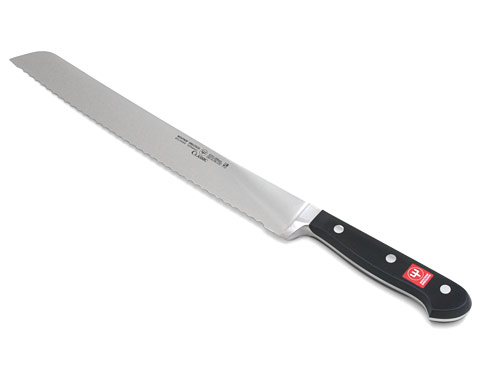
Yes, just for bread and bread alone. However, pastry chefs and bakers use it to cut sponge cakes in half. So yes…strictly for bread stuff.
Carving Knife
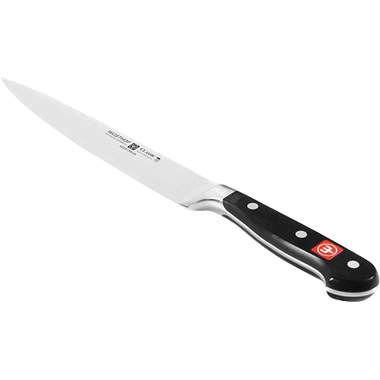
This knife is used to carve stuff like turkey, roast ham, and chicken. a chef or butchers knife and suffice here as well.
PLEASE THE KNIFE GODS
To care for your knives you can do the following
1. Wash and dry your knives regularly. Rubbing the a little lemon juice on the blade helps to maintain its sharpness.
2. Store your knives in a dry place and make sure its well dried before storage to avoid rust.
3. Rinse your knives with a mixture of baking soda and vinegar to eliminate any smells like onions and garlic so you can use it for fruit and other stuff and the juices aren’t transferred.
4. Use a sharpening steel (the long thing that comes with your knife set but you’re clueless as to how to use it) before each use by running the blade against the long steel for about half a min to maintain the blade till its due for sharpening or do it against the back of another knife.
5. Try and use the knife meant for what you want to do.
6. Always cut with the edge moving away from you. Knives can have sharp razor edges so handle all knives with care and respect.
7. Sharpen every other 3 months.
THE KNIFE GODS ABHOR THESE
1. DO NOT EVER USE IT TO OPEN ANY TIN OR CAN. Yes! I had to put that in block letters because other than the fact that it grinds my gears when I see people do that it chips the tip of the blade and in the long run can chop of the whole top. Please let us not invoke the wrath of the knife gods!
2. Do not use a chef or butchers knife to cut against bone
3. Do not use sharpen your knives at the cement block of your kitchen except its a Japanese knife stone and you have the complete set.
4. Do not use the knife if its not for the purpose it was made for.
The baking powder and vinegar tip works for blender, cutting boards and surfaces as well.
I hope i have tried throw a little light on knife care…
So please with these few points of mine I hope I have been able to convince you and not confuse you that knife care is the best policy
May the Knife Force Be With You All
Ciao!
PS: you can read read more about knife care here http://www.knifecenter.com/info/knife-care
_____________________________________________________________________________________________
Chef Fregz loves to cook! He is a graduate of Le Cordon Bleu Paris Culinary Arts School in France and hosts monthly “Chef Fregz Specials” where he whips up a yummy menu with a different theme each time then everyone enjoys a taste.
He also caters special events and private dinners. To find out more, visit http://theskinnychefthatcould.wordpress.com/


